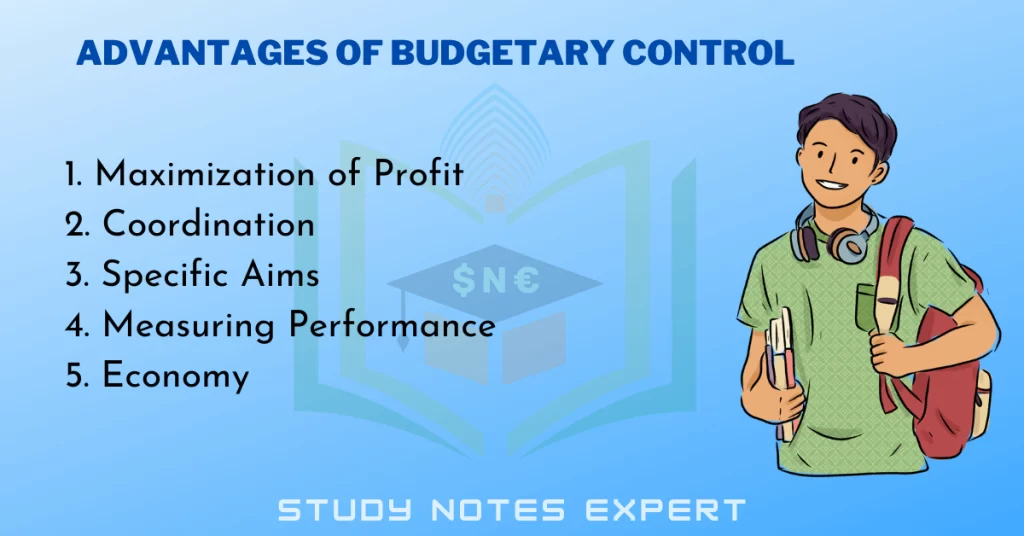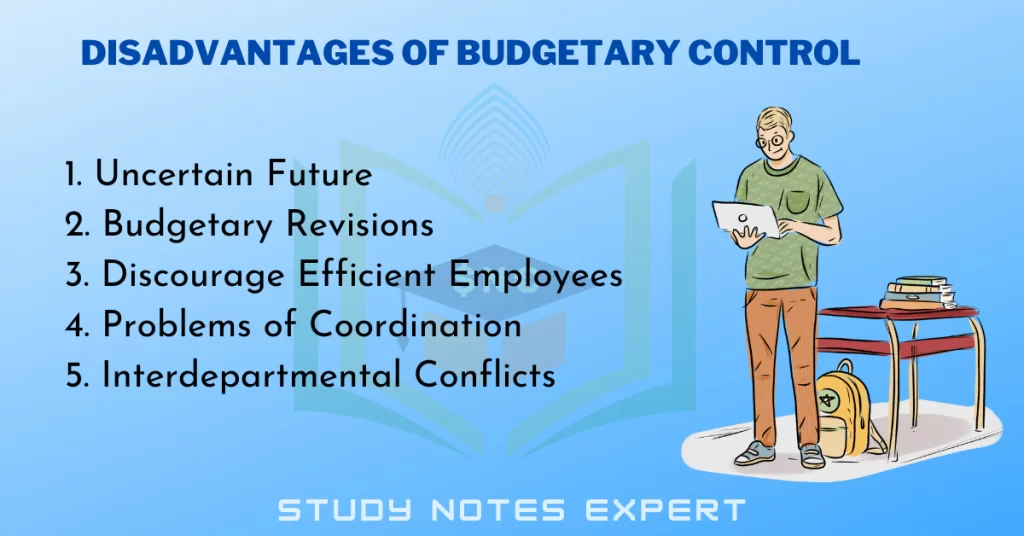A budget is defined as a financial instrument that can be used to plan and project future values using previous experience. It is a numerical statement that outlines what the future direction of action will be in numerical form and it is very important for budgetary control. It covers a specified period of time and provides an operational plan in writing. It is a written record of the policy to be followed for the accomplishment of the organization’s goals. The principal goal of the budget is to meet the goals of the organization in a specific way.
According to CIMA Terminology, it will be “A plan expressed in money. It is prepared and approved prior to the budget period and may show income, expenditure, and the capital to be employed. It may be drawn up showing incremental effects on former budgeted or actual figures, or be compiled by zero-based budgeting.”
Meaning of Budgeting for Management
Budgeting is the process of planning, implementing, and processing budgets. It is the process of preparing budgets in terms of numbers for a certain period of time in the future. Budgeting is a method to avoid future problems and resolve problems that arise. Businesses are required to assess its situation in the present economic climate.
Definition of Budgeting for Management
Budgeting is a tool for management that serves the purpose of planning short-term and control. It is the entire process of planning, implementing, as well as operating budgets. The principal purpose behind the budgets for short periods is to guarantee that the budgets are backed with sufficient resources.
According to Shillonglow, “Budgeting is the preparation of comprehensive operating and financial plans for specific intervals of time”.
Meaning of Budgetary Control
Budgetary control is the process of determining budgeted numbers for a certain time frame, then comparing the actual numbers with the budgeted figures, and then identifying the variations. This helps to identify variations and the causes for these. It assists in the implementation of corrections to improve the situation. It’s an ongoing process that aids in the process of planning and coordination.
Definition of Budgetary Control
According to Brown Howard and Howard, “Budgetary control is a system of controlling costs which includes the preparation of budgets, coordinating the department and establishing responsibilities, comparing actual performance with the budgeted and acting upon results to achieve maximum profitability”
Top 5 Advantages of Budgetary Control – 2025

The benefits of budgetary control can be described in the following order:
1. Maximization of Profit
The budgetary controls aid the company to maximize profits through properly organizing and coordinating different tasks. The budget also regulates expenditures that are revenue-based and capital-based. Budgeting also ensures that resources are utilized efficiently.
2. Coordination
The work of various areas of an organization is coordinated with the help of control of the budget. This helps to ensure the effective achievement of organizational goals. The success of budgeting is contingent on coordination and it works as the advantage of budgetary control.
3. Specific Aims
Budgetary controls aid in setting specific goals which are crucial to plan and control. This helps set the goals for various departments. The top management is responsible to set up guidelines and plans that must be followed.
4. Measuring Performance
Budgetary controls are crucial measurement tools since they assist in setting targets that aid in measuring performance. Actual performance is compared to the ones budgeted to identify the differences. It is very beneficial for budgetary control.
5. Economy
Budgetary controls aid in controlling expenses as well. A systematic approach to budgeting and planning is crucial for this. Utilizing resources efficiently is not just important for companies, but also has an economic broad impact. It can also help in reducing the waste of precious resources and improves efficiency.
Major 5 Limitations/Disadvantages of Budgetary Control – 2025

There are several limitations of budgetary control which are as follows.
1. Uncertain Future
Budgets involve future projections, and the future is uncertain. This can greatly diminish the effectiveness of budgets because the future is not predicted with absolute certainty. Any major change in the conditions might require changes to the budgets as well. Changes in the budget could raise the operating costs of the organization.
2. Budgetary Revisions
Because the future is uncertain it is possible that budgets will have to be reviewed. However, frequent revision of budgets isn’t a good idea since it can impact the effectiveness of employees. These revisions can be costly.
3. Discourage Efficient Employees
Controlling budgets can demoralize effective employees due to the creation of goals. They tend to focus on the accomplishment of goals only and not go above them. In these situations, budgetary control could reduce efficiency instead of increasing it.
4. Problems of Coordination
The coordination of various departments aids in the proper execution of budgetary controls. The organization may choose to designate a budgetary officer to serve purposes of coordination. But many companies are not able to take on additional staff members that could affect the effectiveness of budgetary controls.
5. Interdepartmental Conflicts
Controlling budgets can result in inter-departmental conflicts since they compete for scarce resources. Different departments are given specific goals to be accomplished and they might attempt to achieve these objectives at the expense of general organizational goals.
What is Budgetary Control and its Types?
Budgetary control is a system of controlling costs and expenses by setting budgets and then comparing actual results to the budget. There are two types of budgetary control:
1. Static
2. Flexible
What is the Top Benefit of Budgetary Control?
The top benefit of budgetary control is that it provides a mechanism for ensuring that an organization’s financial resources are best used to achieve its strategic objectives. By creating and adhering to a budget, an organization can control its spending, track its progress toward its goals, and make necessary adjustments to ensure that it remains on track.

